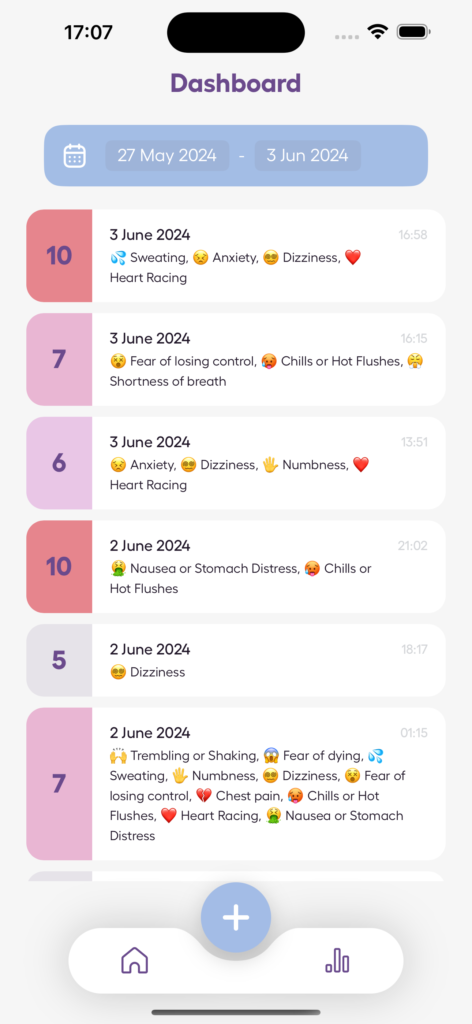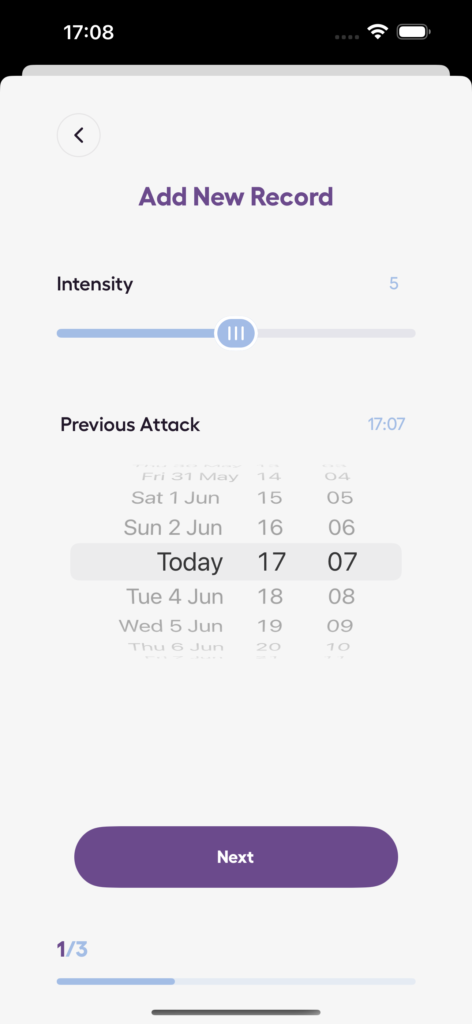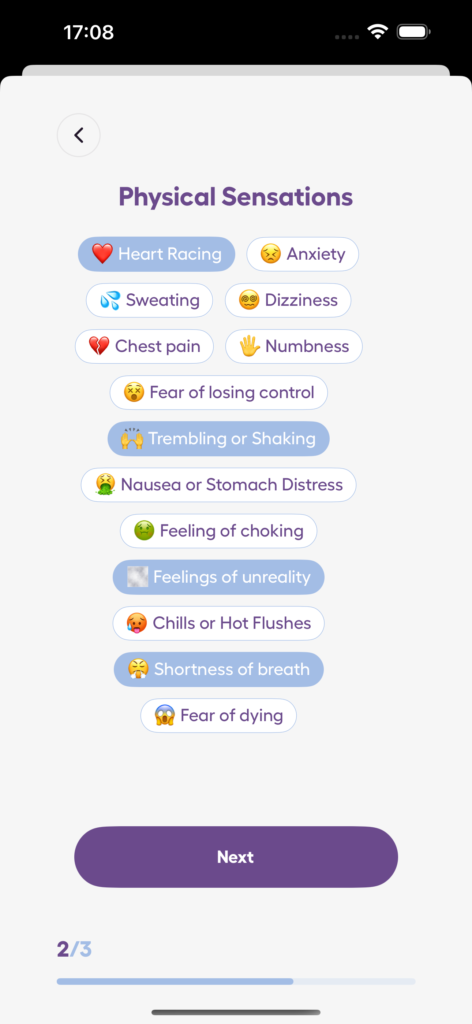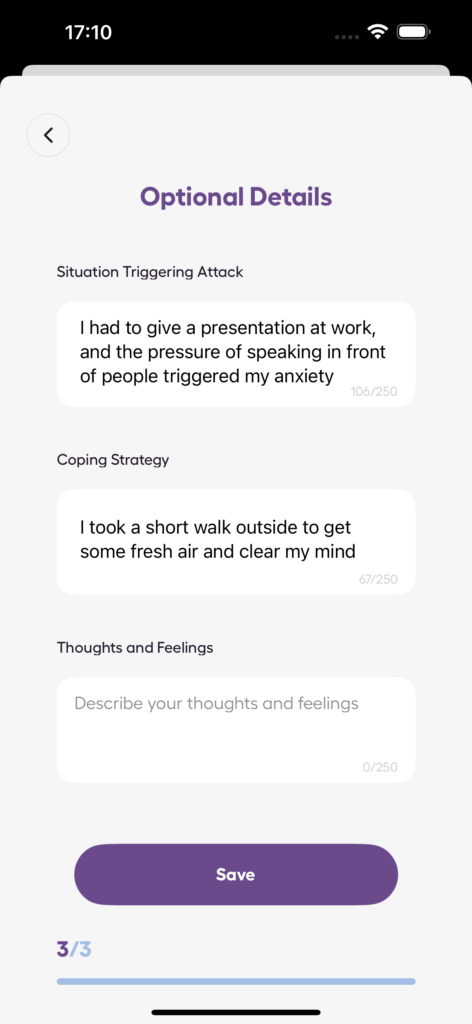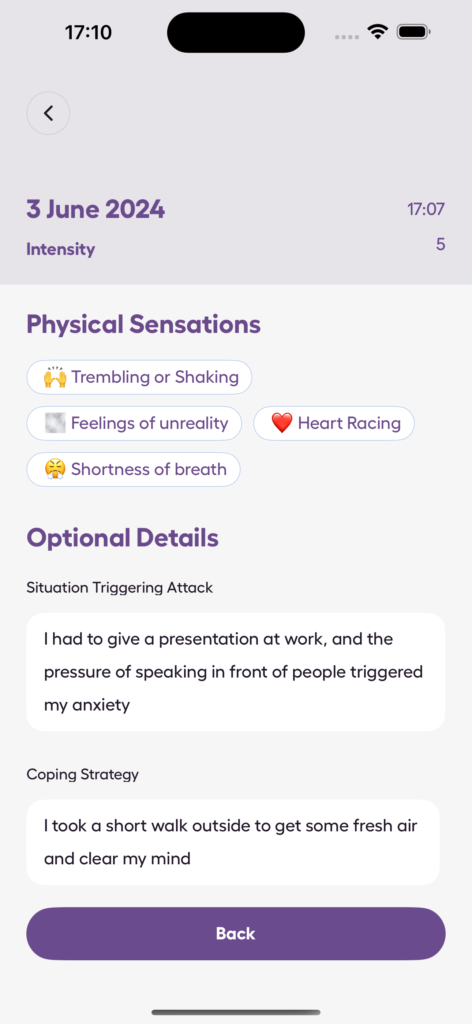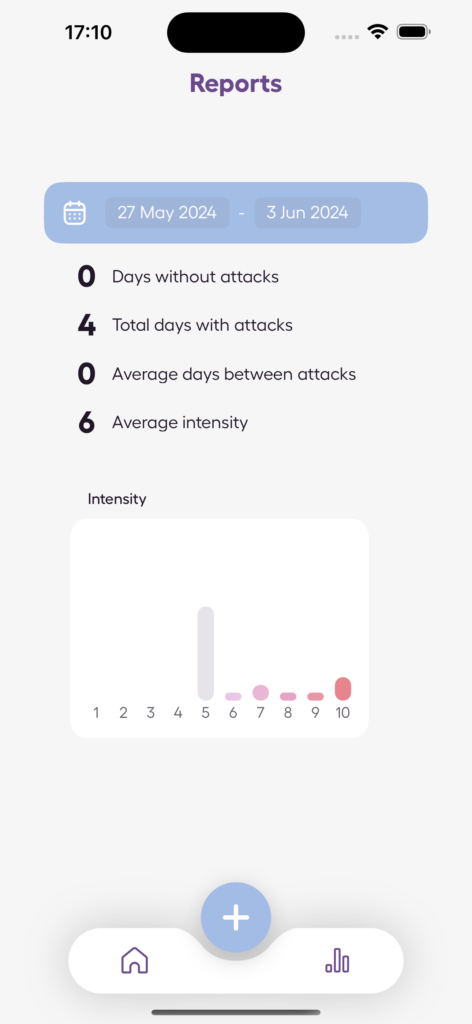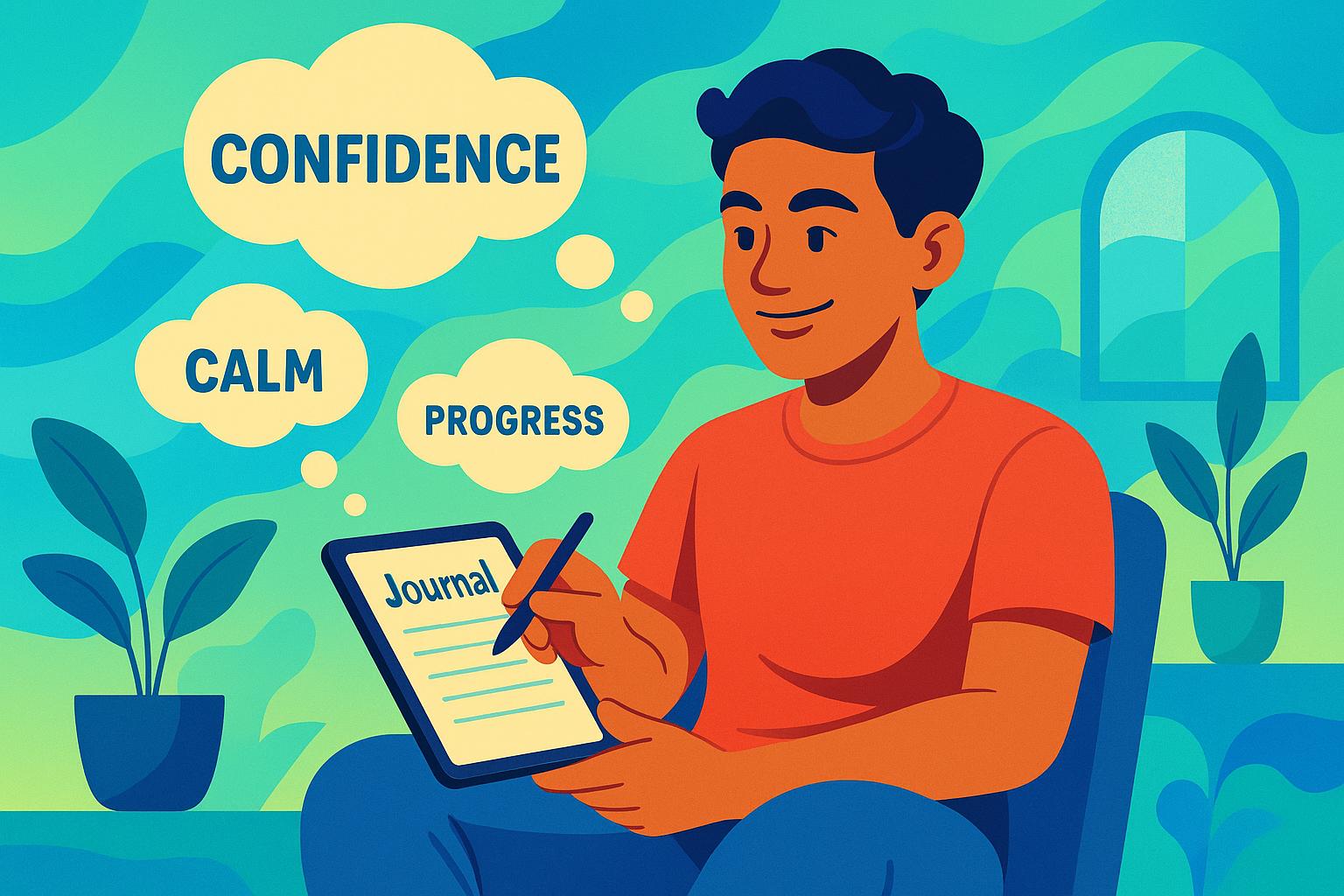Social support can significantly reduce anxiety by offering emotional comfort, practical help, and guidance. Strong connections – whether with friends, family, or support groups – help create a sense of safety, lower stress hormones, and provide validation for your feelings. Here’s a quick summary:
- Emotional Support: Feeling heard and understood eases anxiety.
- Practical Help: Assistance with tasks can reduce overwhelm.
- Advice: Trusted guidance helps with decision-making and managing triggers.
Building a support network involves evaluating current relationships, meeting new people through shared activities, and maintaining meaningful connections. Combining these efforts with tools like anxiety tracking apps can help you identify triggers, monitor progress, and improve communication with your support system. Together, these steps provide a foundation for managing anxiety more effectively.
The Importance of a Social Support System
Why Social Support Reduces Anxiety
Social support creates lasting changes in both the brain and body, helping to ease anxiety in ways that go beyond short-term relief.
How Social Bonds Help
Strong connections with others naturally shield us from stress and anxiety. When we trust the people around us, our brains are less likely to see challenges as overwhelming. These relationships offer:
- A feeling of safety and belonging
- Confidence that help is available when needed
- Emotional support to tackle tough situations
These connections also promote healthier physical responses during social interactions, reinforcing their benefits.
The Role of Social Contact in Stress Relief
Positive social interactions can lower stress hormones and release calming chemicals in the body. Even short, friendly exchanges can ease physical symptoms tied to anxiety. Understanding these effects might encourage you to seek out meaningful interactions, which can provide both immediate comfort and long-term benefits.
The Power of Understanding and Validation
Beyond the physical effects, being understood and validated can significantly reduce anxiety. When someone acknowledges and accepts your feelings, it helps lessen isolation. Talking about your worries with someone who "gets it" can transform feelings of being overwhelmed into a sense of control, making it easier to manage anxiety and build resilience.
4 Types of Support That Help With Anxiety
Let’s break down four types of support that can ease anxiety in practical ways.
Emotional Support
Emotional support plays a huge role in managing anxiety. When someone listens without judgment and shows understanding, it creates a safe space to share feelings. This kind of support helps you feel heard and reassured, which can make anxiety less intense.
Having a friend or family member who checks in or understands your triggers can provide:
- A safe outlet to share fears and worries
- Validation of your feelings and experiences
- Comfort during tough times
- Regular connection to help you avoid feeling isolated
Practical Help
Sometimes, anxiety can make everyday tasks feel impossible. That’s where practical help comes in. When others step in to assist with responsibilities, it can lighten the load and give you space to focus on your mental health.
Examples of practical help include:
- Helping with household or work tasks during stressful times
- Providing transportation to appointments
- Running errands when anxiety makes it hard to leave the house
This kind of hands-on assistance can make a big difference, especially when anxiety feels overwhelming.
Advice and Guidance
When anxiety clouds your decision-making, good advice can be a game-changer. Trusted guidance can offer:
- Fresh perspectives on managing anxiety triggers
- Practical tips for dealing with tough situations
- Information about coping techniques that work
- Recommendations for professional resources, if needed
Whether it’s from a friend, a therapist, or a support group, quality advice can help you take clearer steps toward managing anxiety.
sbb-itb-b1dedcc
How to Build Your Support Network
Creating a strong support network can make a big difference in managing anxiety. While it takes time to build meaningful connections, the benefits for your well-being are worth the effort.
Evaluate Your Current Relationships
Take a closer look at your existing relationships and how they affect your anxiety. Pay attention to how you feel after spending time with someone. This can help you spot supportive people and decide where you might need to set boundaries.
Look for people who:
- Listen actively and respect your personal space
- Offer practical support when you need it
- Are dependable during challenging moments
Expand Your Circle
Meeting new people can help you grow your support system. Choose activities that align with your interests and comfort level, such as:
- Joining local mental health support groups
- Attending community classes or workshops
- Volunteering for causes you care about
- Participating in hobby meetups to find like-minded individuals
Quality matters more than quantity. Even one or two strong connections can make a big difference. Once you meet new people, focus on building deeper bonds with them.
Maintain and Strengthen Relationships
Building strong relationships requires effort and ongoing attention. Here are a few ways to keep your connections healthy:
- Schedule regular check-ins (weekly or monthly) to stay in touch
- Communicate openly about your anxiety and what kind of support you need
- Offer support in return whenever you can
You can also use tools like the Anxiety Journal app to track how your interactions affect your anxiety. This can help you identify which relationships are the most supportive.
Building a support network is a step-by-step process. Start small and prioritize relationships that truly contribute to your well-being.
Using Apps With Your Support System
Technology can be a helpful tool in managing anxiety, especially when combined with a strong support network. Here’s how tracking tools can work alongside your support system to better understand and manage anxiety.
Record Daily Anxiety Patterns
Keeping track of your anxiety can help you and your support network identify triggers and patterns. The Anxiety Journal app makes this process easier by letting you:
- Log each anxiety episode, including symptoms and potential triggers
- Monitor daily stress levels
- Note which coping strategies are most effective
This kind of detailed tracking provides a clearer understanding of your anxiety patterns. Sharing this information with trusted friends, family, or mental health professionals allows you to focus on specific trends or situations without relying solely on memory.
Track Your Progress Over Time
Looking at long-term trends can give you a better sense of how you’re managing anxiety. The Anxiety Journal app provides tools to help with this, such as:
- AI-based analysis to identify patterns in your anxiety
- Detailed statistics showing changes in anxiety levels over time
- Progress reports to visualize your improvement
- GAD-7 anxiety tests to measure anxiety levels with clinical accuracy
These insights can help you and your support system focus on times or situations when you might need extra help. For example, if you notice anxiety spikes at certain times, you can plan ahead with your support network. The app even includes guided breathing exercises, which you can practice with friends or family to create shared coping strategies that strengthen your relationships while managing anxiety.
Conclusion
Managing anxiety effectively involves combining the power of social connections with practical tracking methods. Social bonds play a key role in balancing stress levels and improving emotional well-being, while consistent monitoring helps identify patterns and areas for growth.
The Anxiety Journal app works hand-in-hand with your support network, turning your daily notes into useful insights. This makes it easier to understand your needs and communicate them clearly to others.
Strengthen your support system and keep track of your progress to achieve lasting relief. Together, these efforts provide a solid foundation for managing anxiety through informed conversations and focused support.
Make it a habit to review your progress and prioritize relationships that truly support you. Use tracking tools to guide meaningful discussions about your mental health, ensuring your needs are met in a way that feels right for you.
With a mix of personal connections and practical tools, you can take clear steps toward better mental health. Consistency in building relationships and monitoring your progress leads to lasting improvements in handling anxiety.


